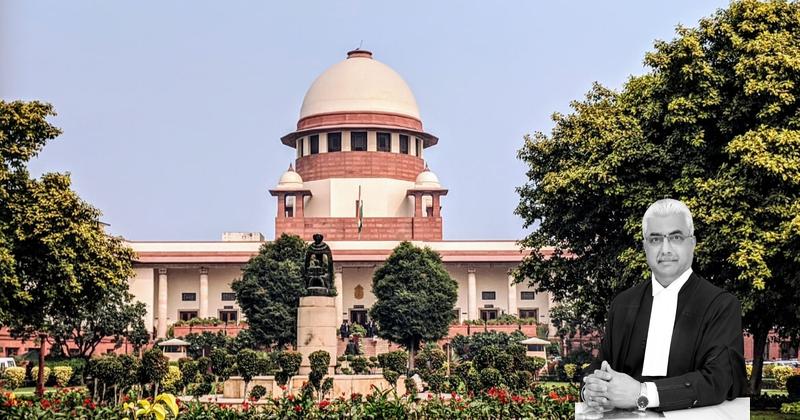Explore the nuances of the court’s legal analysis in a recent case involving the interpretation of tender document requirements in commercial contracts. The case sheds light on the boundaries of judicial review in contractual matters, emphasizing the importance of deference to the expertise of the authority issuing tender documents. Join us to unravel the complexities of contract law and the judicial scrutiny process.
Facts
- The administration of the SCB Medical College and Hospital reserves the discretion to disqualify bids if required documents are not submitted.
- The Appellant was awarded the tender and entered into an agreement for one year.
- Tenders were invited from eligible firms with minimum three years of relevant experience and valid labor and food licenses.
- Respondent no.1 filed a petition seeking to set aside the Tender Committee proceedings.
- Important clauses regarding eligibility criteria, disqualification, and rejection of bids were highlighted.
- The Technical Committee found Respondent no.1 and Respondent no.6 disqualified for not submitting a valid labor license.
- The financial bids of the Appellant and Respondent no.5 were opened, with the Appellant being the lowest bidder.
- Respondent no.1 filed a writ petition apprehending disqualification.
- Four bids were received by the Tender Committee.
- The impugned judgment dated 23.03.2021 referenced the facts of the case.
- Clause 9 of the eligibility criteria was deemed candid and clear by the court.
- The clause specifically required a valid license from the Labour Department.
Also Read: Interpretation of Section 43B: Debentures vs. Interest Payment
Arguments
- The Appellant argued that the High Court misinterpreted the tender document requirements regarding the labour license under the Contract Labour Act.
- It was contended that Respondent no.1 lacked the minimum three years’ experience as mandated in the tender clauses.
- The Appellant further claimed that the High Court wrongly considered the authority’s decision to award the contract as mala fide.
- The Appellant also challenged the High Court’s jurisdiction in directing the authority to grant the work order to Respondent no.1 after quashing the initial award to the Appellant.
Also Read: Ensuring Transparency in Electoral Processes
Analysis
- The High Court’s characterization of the acceptance of the Appellant’s tender as mala fide is questionable.
- The evaluation of the Petitioner’s service period at AIIMS, Bhubaneswar was deemed inconsistent by the Opposite Parties despite the experience certificate provided.
- The opposition by Respondent No.1 was focused on enforcing the terms of the NIT (Notice inviting Tender).
- The plea of mala fide made in the writ petition was countered by the authority’s assertion of a transparent bidding process.
- The importance of a labor license under the Contract Labor Act was debated, with the court highlighting the agency’s responsibility in various work scenarios.
- The decision to reject the Petitioner’s bid and award the contract to another party was deemed as mala fide by the Petitioner.
- The Court pointed out instances where BCCL referenced NIT clauses to justify their decisions during the tendering process.
- The lack of a labor license did not seem justified given the specific stipulations of the TCN mentioned in the case.
- The Petitioner’s experience certificate from AIIMS, Bhubaneswar was challenged by the Opposite Parties despite being submitted as required.
- Judicial review was emphasized in the context of contract interpretation in commercial matters, highlighting the boundaries of interference by courts.
- The High Court was criticized for overstepping its judicial review authority by quashing the contract grant decision.
- The decision to quash the contract and direct a new work order was made in favor of the Petitioner based on the evaluation of bids and qualifications.
- The Petitioner’s compliance with eligibility criteria such as labor license and experience certificate was scrutinized by the Tender Committee.
- The decision to accept the tender or award the contract is reached through negotiations and courts will only interfere in cases of arbitrariness, irrationality, bias, mala fides, or perversity.
- The High Court should defer to the interpretation given by the owner or employer of a project, unless it is patently perverse or mala fide.
- Courts should be cautious and exercise restraint in matters of contract involving state instrumentalities.
- The authority floating the tender is the best judge of its requirements and interpretations, and judicial interference should be minimal.
- The court must not substitute its decision for the expertise of the authority authoring the tender documents.
- The terms of the invitation to tender are in the realm of contract and are not open to judicial scrutiny.
- If two interpretations are possible, the interpretation of the tender document’s author must be accepted.
- The court must defer to the understanding and appreciation of the tender documents unless there is mala fide or perversity in the interpretation.
- Employers of establishments must send a registration statement to the Inspector within the specified period.
- The statement should include details such as the name of the employer, postal address of the establishment, category of the establishment, etc.
- No adolescent shall work for more than six hours a day in any employment.
- In case of disagreement on the category of establishment, the matter will be referred to the Chief Inspector for a final decision.
- The registration under the Orissa Act is not for issuing a labor license under the Contract Labor Act.
- The Contract Labor Act applies to establishments with 20 or more workmen, but this requirement can be waived by the appropriate government.
- Second-guessing the authority’s interpretation of its own Act is not permissible unless it is arbitrary, perverse, or mala fide.
- Except for the use of the term ‘mala fide’, no evidence of bad faith has been presented in the case.
- The pleadings do not support the assertion of ‘mala fide’.
- It is evident that ‘mala fide’ has not been proven based on the facts of the case.
Also Read: Limitations of Court’s Power in Modifying Arbitral Awards
Decision
- The High Court’s judgment has been set aside and the appeals have been allowed.
- The Appellant is directed to complete performance under the agreement made on 27.11.2020 within one week from the date of this judgment.
- SLPC, as per F.D. Notification No.22393/Fdt.08.06.2012, has recommended placing the work order with the L-1 bidder after examining the records.
- The work order has been issued to the L-1 bidder (O.P. No 5) on 27.11.2020.
- The selected firm has started providing diet services in the hospital from December 2020.
Case Title: M/S UTKAL SUPPLIERS Vs. M/S MAA KANAK DURGA ENTERPRISES (2021 INSC 242)
Case Number: C.A. No.-001517-001518 / 2021



